Dagstuhl-Seminar 17112
Using Networks to Teach About Networks
( 12. Mar – 15. Mar, 2017 )
Permalink
Organisatoren
- Timur Friedman (UPMC - Paris, FR)
- Aiko Pras (University of Twente, NL)
- Jürgen Schönwälder (Jacobs University Bremen, DE)
Kontakt
- Simone Schilke (für administrative Fragen)
Impacts
- Challenges with Reproducibility : article in Reproducibility '17 : Proceedings of the Reproducibility Workshop : Pages 1-4 - Bajpai, Vaibhav; Kühlewind, Mirja; Ott, Jörg; Schönwälder, Jürgen; Trammell, Brian; Sperotto, Anna - New York : ACM, 2017. - 4 pp..
- The iLab Concept : Making Teaching Better, at Scale : article pp. 178-185 - Pahl, Marc-Oliver - Los Alamitos : IEEE, 2017 - (IEEE Communications Magazine ; 55. 2017. 11).
- Using Networks to Teach About Networks : (Report on Dagstuhl Seminar #17112) - Schönwälder, Jürgen; Friedman, Timur; Pras, Aiko - New York : ACM, 2017. - 5 pp. - (Computer communication review ; 47. 2017, 3).
Computer networks have become a common utility and the Internet provides new opportunities for education. In addition, we see an increasing deviation of the deployed Internet from the basic principles driving the design of computer networks. All this has an impact on how we educate young minds in computer networks and hence it is required to rethink how education in computer networks should be organized, which topics are essential to cover and which ones are merely nice illustrations of core concepts, and how the Internet itself can be used to develop new educational materials enabled by the Internet. Some questions to discuss during the seminar are:
- Which topics should be taught in a typical undergraduate course? What are the essential basic principles that need to be understood? Which topics should be covered in a typical graduate course? How to deal with the fact that architectural concepts are often violated in real networks?
- How should topics be taught? How to best use the Internet for teaching how the Internet works? How can we more easily ’mesh’ teaching materials? Can we better organize the sharing of video content, assignments, or experimental setups? Do we need an open source platform for teaching material? What about open source books on computer networks replacing traditional textbooks?
- What is the experience with modern teaching styles, such as pure online courses like MOOCs or flipped classrooms? Which role should project work play? How can novel teaching ideas best be leveraged and integrated into existing educational concepts?
 Timur Friedman, Tristan Henderson, Aiko Pras, and Jürgen Schönwälder
Timur Friedman, Tristan Henderson, Aiko Pras, and Jürgen Schönwälder
Computer networks have become a common utility and the Internet provides new opportunities for education. In addition, we see an increasing deviation of the deployed Internet from the basic principles driving the design of computer networks. All this has an impact on how we educate young minds in computer networking and hence it is required to rethink how education in computer networking should be organized, which topics are essential to cover and which ones are merely nice illustrations of core concepts. Furthermore, it seems necessary to think about using the Internet itself more intensively to develop new educational materials. In order to start a discussion of such educational aspects, a Dagstuhl seminar titled "Using Networks to Teach About Networks" has been organized. Some questions discussed during the seminar were:
- Which topics should be taught in a typical undergraduate course? What are the essential basic principles that need to be understood? Which topics should be covered in a typical graduate course? How to deal with the fact that architectural concepts are often violated in real networks?
- How should topics be taught? How to best use the Internet for teaching how the Internet works? How can we more easily ’mesh’ teaching materials? Can we better organize the sharing of video content, assignments, or experimental setups? Do we need an open source platform for teaching materials? What about open source books on computer networks replacing traditional textbooks?
- What is the experience with modern teaching styles, such as pure online courses like MOOCs or flipped classrooms? Which role should project work play? How can novel teaching ideas best be leveraged and integrated into existing educational concepts?
 Timur Friedman, Aiko Pras, and Jürgen Schönwälder
Timur Friedman, Aiko Pras, and Jürgen Schönwälder
- Olivier Bonaventure (UC Louvain, BE) [dblp]
- Alessio Botta (University of Naples, IT) [dblp]
- Stefan Burschka (RUAG - Bern, CH) [dblp]
- Georg Carle (TU München, DE) [dblp]
- Marinos Charalambides (University College London, GB) [dblp]
- Pieter-Tjerk de Boer (University of Twente, NL) [dblp]
- Wouter de Vries (University of Twente, NL) [dblp]
- Jordi Domingo-Pascual (UPC - Barcelona, ES) [dblp]
- John Domingue (The Open University - Milton Keynes, GB) [dblp]
- Timur Friedman (UPMC - Paris, FR) [dblp]
- Gunnar Karlsson (KTH Royal Institute of Technology - Stockholm, SE) [dblp]
- Jean-Yves Le Boudec (EPFL - Lausanne, CH) [dblp]
- Simone Opel (Berufskolleg der Stadt Bottrop, DE) [dblp]
- Marc-Oliver Pahl (TU München, DE) [dblp]
- Cristel Pelsser (University of Strasbourg, FR) [dblp]
- Aiko Pras (University of Twente, NL) [dblp]
- Bruno Quoitin (University of Mons, BE) [dblp]
- Fabio Ricciato (University of Ljubljana, SI) [dblp]
- Jürgen Schönwälder (Jacobs University Bremen, DE) [dblp]
- Anna Sperotto (University of Twente, NL) [dblp]
- James P. G. Sterbenz (University of Kansas - Lawrence, US) [dblp]
- Burkhard Stiller (Universität Zürich, CH) [dblp]
- Iyad Tumar (Birzeit University, PS) [dblp]
- Klaus Wehrle (RWTH Aachen University, DE) [dblp]
- Harald Weikert (IsarNet AG - München, DE)
- Lisa Yan (Stanford University, US) [dblp]
Klassifikation
- networks
Schlagworte
- computer networks
- education
- learning
- internet online education

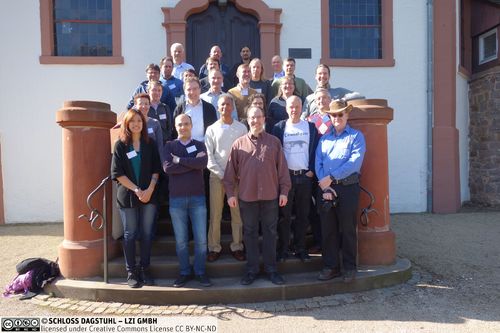
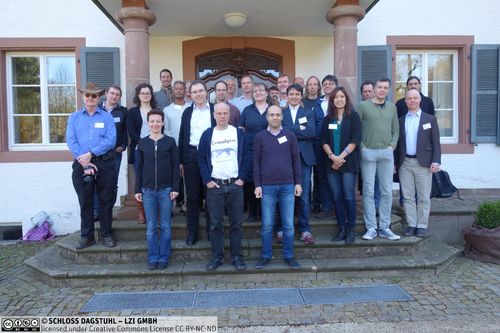
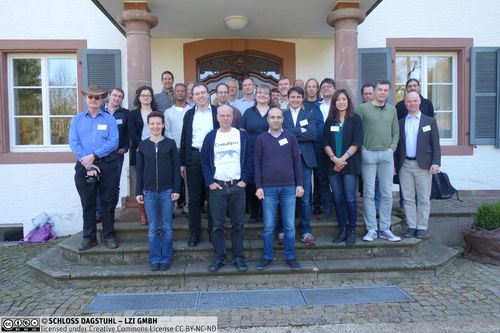
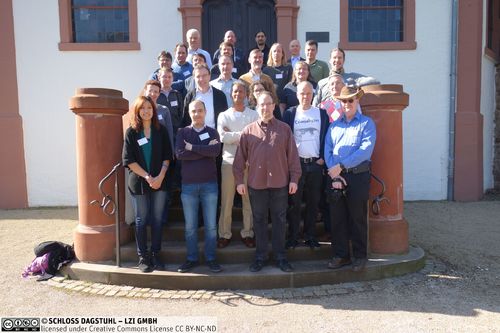
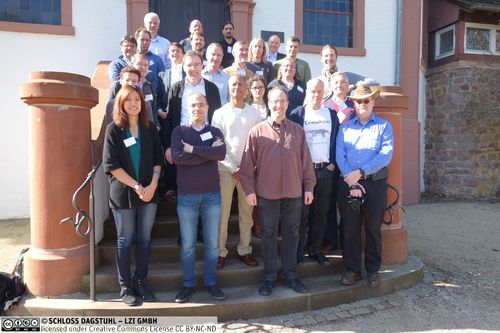
 Creative Commons BY 3.0 DE
Creative Commons BY 3.0 DE
